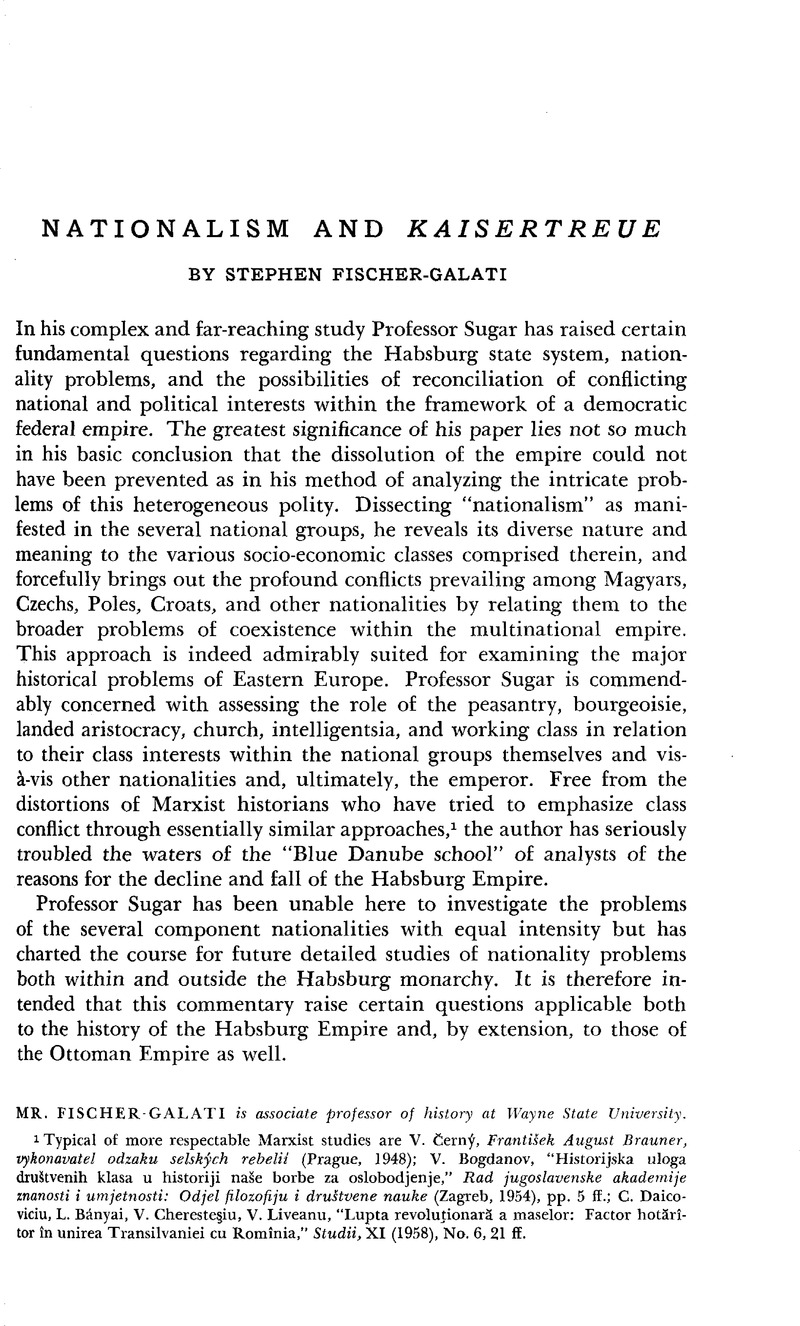No CrossRef data available.
Published online by Cambridge University Press: 27 January 2017

1 Typical of more respectable Marxist studies are Černý, V., František August Brauner, vykonavatel odzaku selských rebeliĺ (Prague, 1948)Google Scholar; Bogdanov, V, “Historijska uloga društvenih klasa u historiji naše borbe za oslobodjenje,” Rad jugoslavenske akademije inanosti i umjetnosti: Odjel filozofiju i društvene nauke (Zagreb, 1954), pp. 5 ffGoogle Scholar.; C. Daicoviciu, L. Bάnyai, V. CheresteŞiu, Liveanu, V, “Lupta revolutionară a maselor: Factor hotărîtor in unirea Transilvaniei cu Romînia,” Studii, XI (1958), No. 6, 21 ff.Google Scholar
2 In this respect the Habsburgs differed greatly from the sultans, who never understood fully the plans for reform voiced by Balkan leaders. On this point see A. Oţetea's penetrating analysis of Ottoman policies in Tudor Vladimirescu şi mişcarea eteristă in Ţădrile Româneşti 1821-1822 (Bucharest, 1945), pp. 239 ff.
3 Dobrogeanu-Gherea's terminology appears applicable as suggested by Pătrăşcanu, L., Un veac de frămdntâri sociale, 1821-1907 (Bucharest, 1945), pp. 197 ff.Google Scholar
4 The political ineptness of the leadership, including that of the working class, is discussed at length in L. Fodor and L. Vajda, Contribuţe la istoria mişcării sindicale din Transilvania (1848-1917) (Bucharest, 1957)Google Scholar; Perović, R., Gradja za istoriju srpskog pohreta u Vojvodini 1848-1849 godine (Belgrade, 1952)Google Scholar; Varga, V. A., “Contributions à l'histoire du mouvement ouvrier de Transylvanie à la fin du XIXe siecle,” Nouvelles études d'histoire (Bucharest, 1960), pp. 477 ff.Google Scholar
5 Pending further investigation of matters related to Hungarian nationalism, we accept Professor Sugar's views on this controversial topic as eminently sound.
6 On the applicability and extension of these generalizations to problems o£ Balkan history, consult the writer's “The Peasantry as a Revolutionary Force in the Balkans” in the forthcoming issue of the Journal of Central European Affairs.
7 Interesting Marxist analyses of these problems are contained in Daicoviciu, Bάnyai, Gheresteşiu, Liveanu, “Lupta revoluţionară …,” pp. 21 ff-; Zacek, V., Čechové a Polάci r. 1845 (Prague, 1947-48), Vols. I and II.Google Scholar
8 Much new information on these topics may be found in Ionescu, M, “Despre insemnătatea şi urmάrile rάscoalei din 1907,” Studii, X (1957), No. 2, 7 ffGoogle Scholar.; Maclesa, V., Mlada Bosna (Belgrade, 1946).Google Scholar